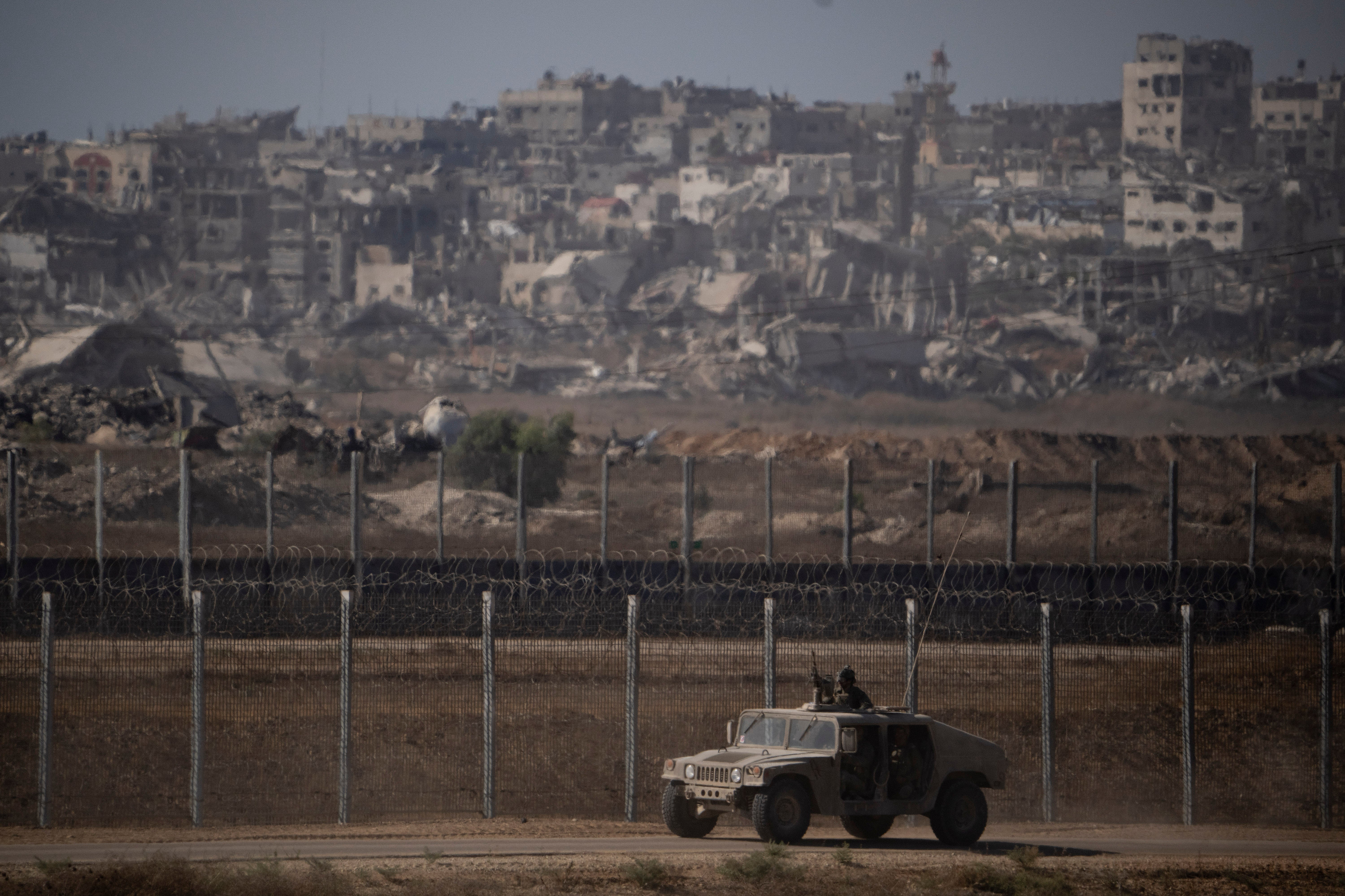Israeli tanks roll deeper into Gaza City as residents flee
Hamas has warned the raids could lead to the collapse of long-running negotiations over a ceasefire
Your support helps us to tell the story
From reproductive rights to climate change to Big Tech, The Independent is on the ground when the story is developing. Whether it's investigating the financials of Elon Musk's pro-Trump PAC or producing our latest documentary, 'The A Word', which shines a light on the American women fighting for reproductive rights, we know how important it is to parse out the facts from the messaging.
At such a critical moment in US history, we need reporters on the ground. Your donation allows us to keep sending journalists to speak to both sides of the story.
The Independent is trusted by Americans across the entire political spectrum. And unlike many other quality news outlets, we choose not to lock Americans out of our reporting and analysis with paywalls. We believe quality journalism should be available to everyone, paid for by those who can afford it.
Your support makes all the difference.Gaza City residents have said they have been forced to flee fled under Israeli fire as tanks thrust deeper into the heart of the city during an offensive Hamas claims could jeopardise ceasefire talks.
Israel ordered evacuations ahead of the raids and urged residents - who said “nowhere felt safe” - to head south of the capital while accusing Hamas and other militants of hiding among civilians.
Residents reported artillery and tank fire, as well as airstrikes. Gaza’s Health Ministry, with limited access to the north, did not immediately report casualties.
Israeli tanks deepened their incursion into some Gaza City districts including Shejaia, Sabra and Tel Al-Hawa, where residents reported the previous day some of the most fierce fighting since the start of the war between Israel and Hamas.
Footage circulated on social media on Tuesday showed families packed onto donkey carts and in the backs of trucks piled with mattresses and other belongings racing through the city's streets to flee areas under Israeli evacuation orders.

"Gaza City is being wiped out, this is what is happening. Israel is forcing us to leave homes under fire," Um Tamer, a mother of seven, told Reuters via a chat app.
Palestinian health officials said Israeli airstrikes had killed six people in a house in Gaza City, nine in two houses in Al-Nuseirat and Deir Al-Balah in central Gaza and three people in Rafah on the Gaza Strip's southern edge.
More than 38,000 people in Gaza, according to the Health Ministry in the Hamas-run strip. The war was triggered by Hamas’s brutal attack inside Israel on 7 October, during which around 1,200 people were killed, most of them civilians, according to Israeli authorities. Hamas also took roughly 250 people hostage. About 120 are still in captivity, with about a third believed to be dead.
Most of Gaza’s population of 2.3 million has been displaced, often multiple times. Hundreds of thousands are packed into tent camps.
It comes as Hamas warned the raids could lead to the collapse of long-running negotiations over a ceasefire and hostage release deal.
CIA Director William Burns returned to the region on Monday for talks in Cairo, according to Egypt’s state-run Qahera TV, which is close to the security services.

But obstacles remain, even after Hamas agreed to relent on its key demand that Israel commit to ending the war as part of any agreement. A key part of that shift is the level of destruction caused by Israel’s rolling offensive, according to officials.
Hamas wants mediators to guarantee that negotiations conclude with a permanent cease-fire, according to two officials with knowledge of the talks.
The current draft says the mediators — the United States, Qatar and Egypt — “will do their best” to ensure that negotiations lead to an agreement to wind down the war.
Israel has rejected any deal that would force it to end the war with Hamas intact — a condition Netanyahu reiterated Sunday.
Hamas on Monday said it was “offering flexibility and positivity” to facilitate a deal, while accusing Israeli prime minister Benjamin Netanyahu of “putting more obstacles in the way of negotiations.”
Reuters contributed to this report

Join our commenting forum
Join thought-provoking conversations, follow other Independent readers and see their replies
Comments